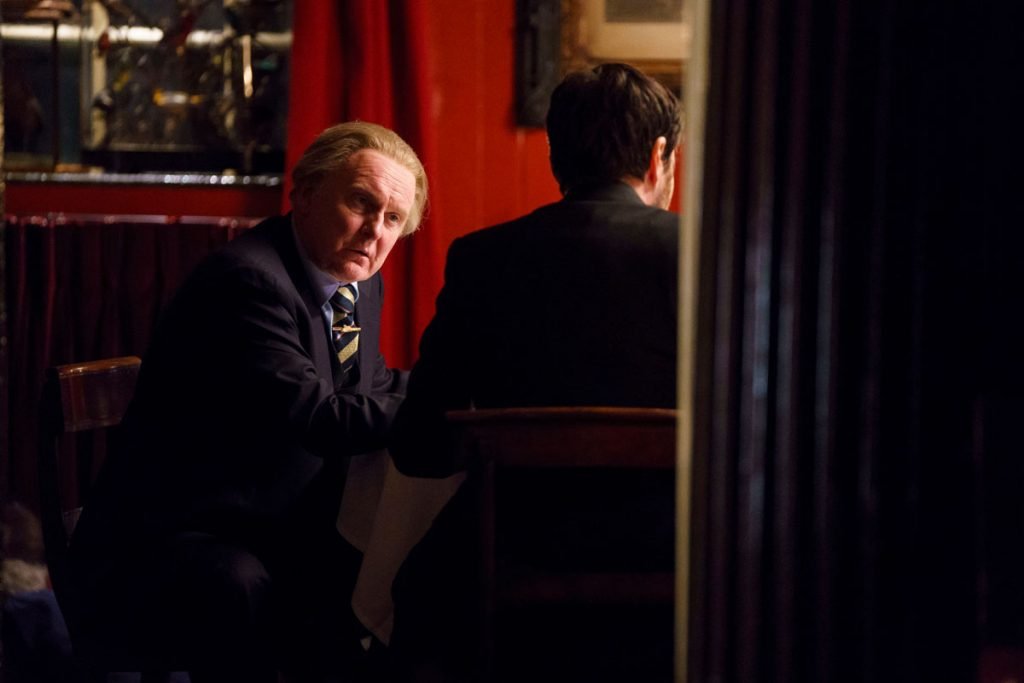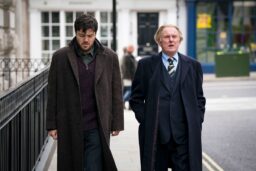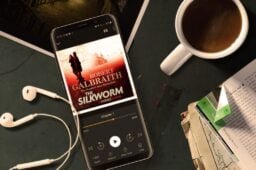Robert Glenister – on reading the Strike audiobooks
Do you enjoy voice work?
Yes, I love voice work be it radio, voiceovers and of course audio books.
Each presents its own challenges but I have to say that during lockdown it was the one area of this industry that was able to continue to operate as a lot of us were able to convert rooms at home into makeshift studios.
Is reading an audiobook like playing several characters in a single play? Or more akin to performing a monologue?
I think it’s a bit of both. The narrative is more akin to a monologue I think as this drives the story along. While playing the characters is similar to being in a radio play but with only one actor.
‘While playing the characters is similar to being in a radio play but with only one actor.’
How well do you get to know the book before recording?
I always get to know the book inside out before recording. There’s a story , probably apocryphal, of a reader who turned up at the studio totally unprepared and proceeded to read the leading character in perfect ‘Queen’s English’, only to get to the end of the book to discover that said character was Scottish.
I also give each character an identifying letter which I write next to every sentence they utter throughout the book so I’m never in any doubt as to who is talking.

Do you ‘see’ the action in your mind while reading?
I’m not sure about “action” but I do see very vividly the various locations where the action takes place and how the characters look.
How do you decide on voices particularly for characters you’d never be likely to play on screen or stage i.e. Robin?
I start from the standpoint of how a character might look as to how he or she might sound. When we started reading the audio books the TV adaptation hadn’t started so I had pretty much a free rein.
I just try and make every character as believable as I can no matter how eccentric or dysfunctional they may be.
‘When we started reading the audio books the TV adaptation hadn’t started so I had pretty much a free rein.’
How did you initially respond to the character of Strike, and has that changed over the course of reading and recording?
I was intrigued by Strike from the start. His background and consequently his complexity makes for a fascinating journey. He can be bullish and rude one minute and then see a vulnerability in someone and treat them with kindness and compassion the next.
I think he’s much more at peace with himself now but will never really bury the trauma he suffered in Afghanistan.
I was intrigued by Strike from the start
Lethal White has a labyrinthine plot, with lots of characters, many of whom go on a huge emotional journey – did that make audio recordings hard?
I love labyrinthine plots and a myriad of characters and see both as a hugely enjoyable challenge, as long as I’ve done the prep beforehand.
As as said plots and characters emotional journeys are so well written and researched most of my work is done.
How did it feel to embody Jasper Chiswell in the TV adaptation of Lethal White, having become familiar with him while recording the audiobook?
I was really chuffed to be offered the TV. I hadn’t seen myself as Chiswell when I read the book, admittedly, but to be honest he’s a character you can’t really forget.
What I think is brilliant is that he’s not a complete monster. He had a son who was killed in Afghanistan and whose death was investigated by Strike also fighting in Afghanistan, and I think this makes him vulnerable and also forges some empathy between him and Strike.
Do you enjoy guessing at the ending of the Strike novels?
I have tried to second guess the outcome of every novel in the series so far and have been wrong every time!
I hadn’t seen myself as Chiswell when I read the book, admittedly, but to be honest he’s a character you can’t really forget.




